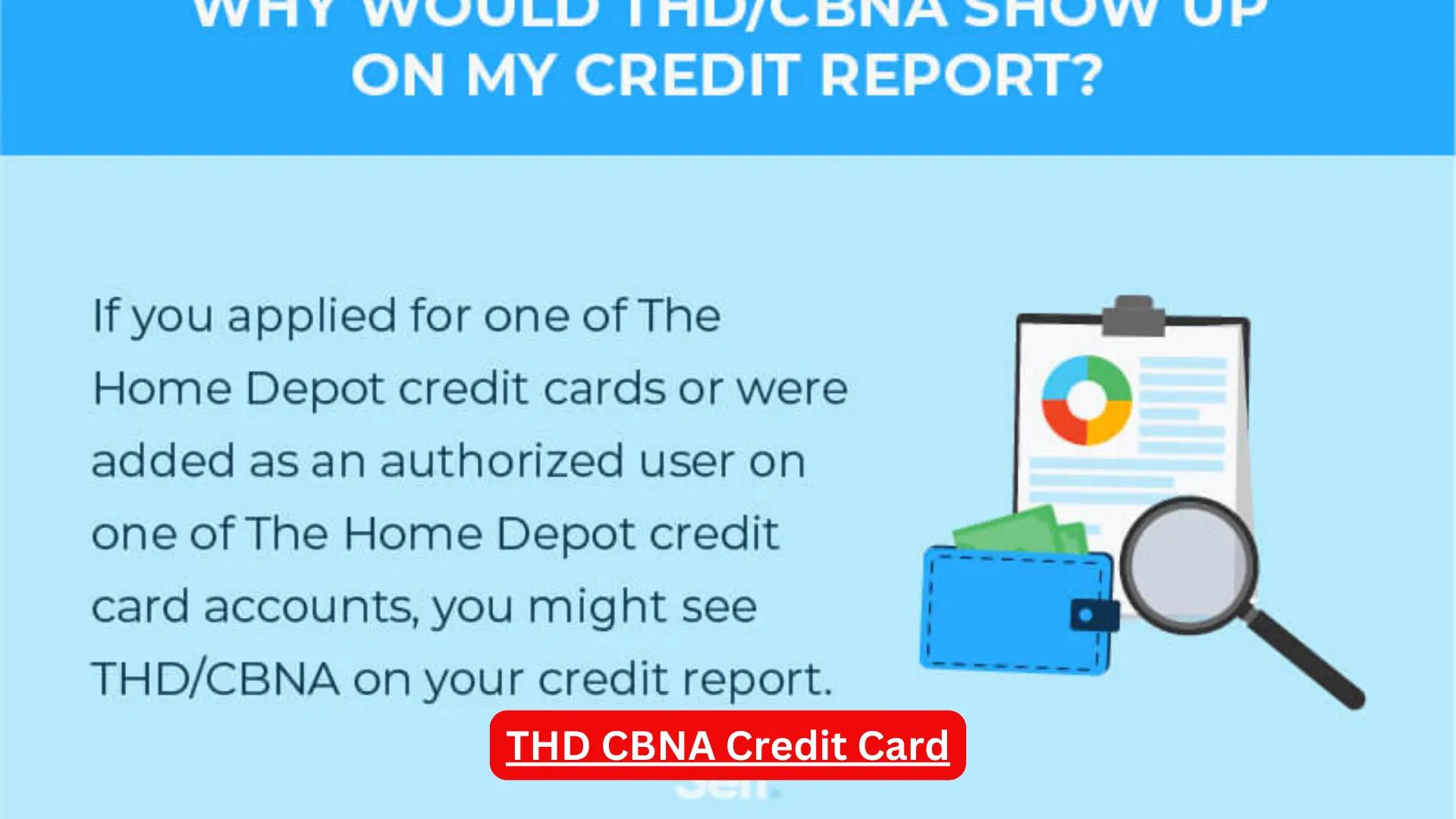THD CBNA Credit Card

When reviewing your credit report, you might come across an unfamiliar entry labeled THD CBNA. This can raise questions and concerns, especially if you aren’t familiar with its origins. In this article, we will dive deep into understanding THD CBNA, its connection to Home Depot, and how it might influence your credit score. Whether you’re trying to manage your credit or simply curious, understanding these details can give you more control over your financial health.
What is THD CBNA?
THD CBNA is an abbreviation that stands for The Home Depot Citibank North America, the entity responsible for issuing Home Depot credit cards. If you hold any type of Home Depot-branded credit card, such as a consumer credit card or a business account, this entry will appear on your credit report.
These cards are part of a partnership between Home Depot and Citibank, with Citibank being the card issuer. Therefore, when you see THD CBNA on your credit report, it indicates that you either have or had a Home Depot credit card under Citibank’s management.
Types of Home Depot Credit Cards
Home Depot offers a range of credit cards, each tailored to meet different financial needs. These include:
- Home Depot Consumer Credit Card: This card is designed for personal use and provides consumers with special financing options on large purchases.
- Home Depot Project Loan Card: This card allows for longer-term financing on Home Depot purchases, typically for home improvement projects.
- Home Depot Commercial Revolving Charge Card: Aimed at businesses, this card provides flexible payment options and is ideal for companies managing multiple purchases.
- Home Depot Commercial Account Card: Also a business card, this account type requires payment in full each month but does not charge interest on balances.
How Does THD CBNA Affect Your Credit Score?
The appearance of THD CBNA on your credit report is directly tied to your Home Depot credit card. Like any other credit card, the way you manage your Home Depot account impacts your credit score in several ways:
1. Payment History
Payment history accounts for approximately 35% of your credit score, making it the most important factor. When you consistently make on-time payments on your Home Depot card, this positive history will be reflected on your credit report, boosting your score. On the other hand, missed or late payments can significantly hurt your score and remain on your credit report for up to seven years.
2. Credit Utilization
Credit utilization refers to the amount of available credit you are using relative to your credit limit. The Home Depot card, like any other revolving credit account, contributes to this factor. Ideally, you should aim to keep your credit utilization below 30% of your total credit limit. If you have a high balance on your Home Depot card, this could raise your overall utilization rate, which might negatively impact your score.
3. Length of Credit History
The length of time you’ve had a credit account open also plays a role in your credit score. THD CBNA can positively contribute to your score if you’ve maintained the account for a long time. Older accounts help build a solid credit history, which can make up about 15% of your score.
4. New Credit Inquiries
Opening a new Home Depot card under THD CBNA will result in a hard inquiry on your credit report. Hard inquiries typically lower your credit score temporarily by a few points. However, these inquiries tend to have less impact over time. If you recently applied for a Home Depot card, the hard inquiry will stay on your report for two years, but its influence diminishes after the first year.
Why is THD CBNA on My Credit Report?
If you spot THD CBNA on your credit report, it could be due to several reasons:
- You Applied for a Home Depot Credit Card: When you apply for any Home Depot card, Citibank pulls your credit report, creating a hard inquiry. This results in THD CBNA being listed on your credit report, even if you do not ultimately accept the card.
- You Have a Home Depot Card: If you currently use a Home Depot credit card, THD CBNA represents this active account. All transactions and payment activities related to the card are reported to credit bureaus under THD CBNA.
- You Recently Closed the Account: Even if you’ve closed the Home Depot card, THD CBNA can remain on your credit report for up to 10 years, depending on how the account was managed.
- Potential Fraud: If you don’t recall applying for or owning a Home Depot credit card, it’s essential to check for possible identity theft. Someone may have opened a fraudulent account in your name.
What to Do If You Don’t Recognize THD CBNA?
If you find THD CBNA on your credit report and you don’t recall opening a Home Depot card, here are the steps you should follow:
1. Review Your Credit Report
Begin by pulling a copy of your credit report from all three major credit bureaus – Experian, Equifax, and TransUnion. Make sure the account is listed on each report. This will give you a broader understanding of your credit history and help identify any discrepancies.
2. Contact Citibank
If you determine that the entry is indeed related to a Home Depot card but you don’t recall opening it, contact Citibank immediately. They can verify the account details and help you close it if necessary. Be sure to report any fraudulent activity.
3. Dispute the Entry
Should you suspect that the THD CBNA entry is an error, you have the right to dispute it with the credit bureaus. Submit a dispute online or via mail, and the credit bureaus will investigate. If the dispute is valid, the incorrect information will be removed from your report.
4. Monitor Your Credit Regularly
It’s crucial to monitor your credit report regularly to ensure there are no unauthorized entries. Many financial institutions and third-party services offer credit monitoring tools to alert you of any changes in real-time.
Final Thoughts on THD CBNA and Your Credit
Seeing THD CBNA on your credit report shouldn’t cause panic. It usually indicates a legitimate account tied to Home Depot credit cards. However, if it appears unfamiliar, it’s essential to take the necessary steps to verify its legitimacy and protect your credit score. By maintaining good credit habits—such as paying on time, keeping low credit utilization, and monitoring your credit regularly—you can ensure that this and other entries contribute positively to your financial health.




